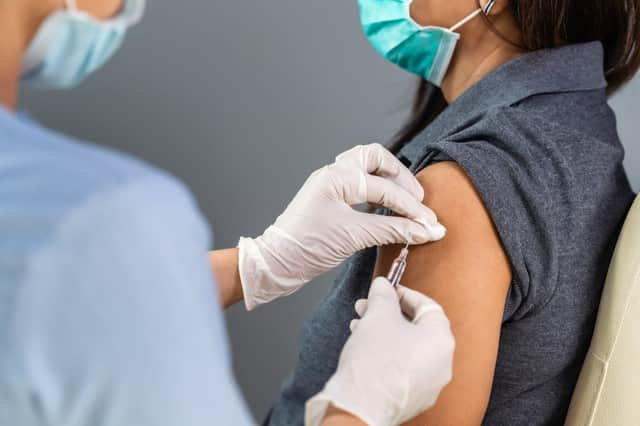A small number of people have had allergic reactions to the Covid vaccine - this is what you need to know


Two people have experienced allergic reactions after being issued a coronavirus vaccine in the UK’s rollout.
The two NHS staff members suffered allergic reactions after receiving the Pfizer-BioNTech vaccine, but are understood to be recovering well. Both are understood to have had a history of allergic reactions to the point of needing to carry an adrenaline auto injector with them.
Advertisement
Hide AdAdvertisement
Hide AdThey developed symptoms of "anaphylactoid reaction" shortly after being injected with the vaccine.
What is the vaccine advice for people with allergies?
The allergic reactions have prompted UK regulator The Medicines and Healthcare products Regulatory Agency (MHRA) to issue a precautionary warning to people with a history of serious allergic reactions to food, medicine or vaccines, saying that they should not take the vaccine.
This advice may be updated, however, once more is known about the allergic reactions suffered by the two recipients of the vaccine, and what element of the vaccine they were allergic to.
NHS England said that every trust involved with the rollout had been informed.
Advertisement
Hide AdAdvertisement
Hide AdDr June Raine, chief executive of the MHRA, said the cases were being examined.
“We know from the very extensive clinical trials this wasn’t a feature," she told a parliamentary committee on Wednesday.
Anyone due to take the vaccine will now be asked about their history of allergic reactions prior to being issued it.
Should I be worried about the vaccine?
National medical director for NHS England, Professor Stephen Powis, said, “As is common with new vaccines, the MHRA have advised on a precautionary basis that people with a significant history of allergic reactions do not receive this vaccination after two people with a history of significant allergic reactions responded adversely yesterday.”
Advertisement
Hide AdAdvertisement
Hide AdWhile allergic reactions to vaccines are rare, they do occur, and this is certainly not the only time someone has had an allergic reaction to a vaccine.
NHS advice states that when allergic reactions to vaccines do occur, they usually occur “within minutes” of the vaccine being administered. The medical professional who administers the vaccine will be trained to deal with any allergic reactions promptly.
NHS advice also states that vaccines “do not cause allergies or any other conditions - all the current evidence tells us that vaccinating is safer than not vaccinating.”
This means that, if you do not have a history of allergic reactions, current information indicates that you should not be worried about testing the vaccine, which has been through all the usual checks and balances.